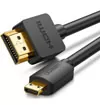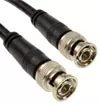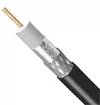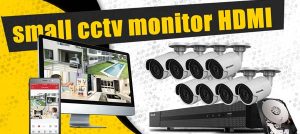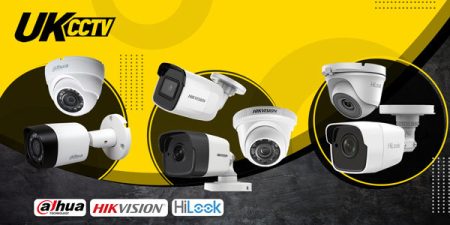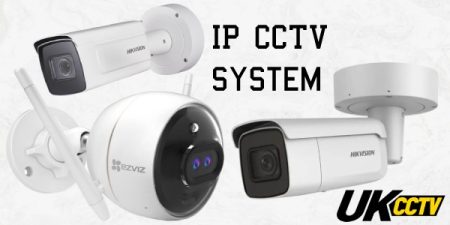Almost all modern electrical systems require a CCTV camera junction box. However, commercial electrical systems are often subjected to harsher conditions than residential systems. Specifying a junction box model built to stricter standards and with commercial features for commercial applications is essential.
What CCTV camera Junction Boxes are in use in the commercial sector today? How do you find a junction Box that meets your application needs? Below we discuss some of the most common commercial use cases for junction boxes. The national electrical manufacturers association (NEMA) helps classify outlets by labelling them according to their use. Outdoor crates are labelled NEMA 3R or 4, and indoor containers are labelled NEMA 1. When installing a junction box, you cannot install a metal box in a non-metallic conduit (encased conduit used to contain and protect wires) unless you run a ground wire through the box.
Home CCTV Camera Junction Box
Camera Junction Box Also Perfect for Home Security Cameras There is this small security camera junction box for small dome cameras. It is 4.6 inches in diameter. CCTV Junction Box works well with all Dome BNC Security Cameras on this page. It also works with all dome IP cameras.
What is Junction Boxes Used in Commercial Applications?
The Junction Box is an electrical enclosure that houses one or more wire terminals. The box protects connections, which generally contain weak points such as wire splices, from environmental influences and accidental contact. It should cover where the two wires meet with a junction box, as described in the junction box guide.
It means that junction boxes are as important in the commercial sector as in the home. However, retail junction boxes are often required to meet a much more comprehensive range of specifications than residential junction boxes. Fortunately, the UKCCTV junction box website offers a full range of housings designed to perform well in commercial junction box applications. Companies should consider the specific requirements of their use case to achieve the right level of protection when choosing an enclosure.
Metal and Plastic Junction Boxes
Junction box housings can make of metal (usually aluminium or stainless steel) or plastic (usually polycarbonate or ABS). Choosing between a plastic and a metal junction box is one of the first critical decisions in specifying an enclosure type for commercial applications.
Selection depends on the cable and hose material used. Metal-clad cables and conduits typically require a stainless steel junction box for grounding. According to the UKCCTV website, junction boxes are the standard choice for non-metallic cables.
Find the Right Size Of The CCTV Camera Junction Box
Junction Box, The junction box’s size is also a factor in the selection. The Junction Box Sizing Guide, which includes standard junction box sizes for the National Electrical Code, covers this topic in detail. Commercial junction boxes are usually larger than residential ones because they often contain multiple connectors.
In summary, we need to consider both the box’s volume (the total space enclosed by the box) and the filling of the box (the total size of the components inside the box). Cable spacing must also consider, as cables placed in close physical proximity can cause interference within the system.
Essential Characteristics of Commercial Junction Box
Material and size are not the only factors to consider when choosing a commercial junction box. The package features described below are also relevant for various commercial applications.
NEMA Rated or IP Rated
These two rating systems measure the protective characteristics of electrical enclosures, including junction boxes. (NEMA vs An IP guide to understanding the differences!) Essentially, these ingress protection ratings allow you to choose a section that provides the required level of protection for your wiring connections.
Refer to your local electrical code to determine if you must use a specific NEMA or IP-rated outlet. In most cases, a commercial electrician or technician who works on electrical installations can tell you the correct NEMA or IP rating as required by local codes.
Custom Cutouts/Breakouts
Junction Boxes, by definition, almost always require cutouts and breakouts to perform their function. Most junction boxes require cutouts for cables and wires entering and exiting the enclosure. However, this also means the chamber maintains a NEMA or IP rating at cable entry and exit.
Digital Printing CCTV Camera Junction Boxes
commercial systems often require labels and instructions. A technician may need to know which specific connectors include in a junction box or which packages require additional security measures. It allows companies to customize junction boxes using specialized printers or print labels and apply them in-house.
Surface Mount Hardware
Commercial Junction Boxes are typically mounted on a wall or other flat surface. Mounting hardware is required to mount the junction box securely. Mounting feet and flanges are the most common way to add mounting hardware to electrical junction boxes.
ukcctv website Some junction box models of enclosures have mounting feet, flanges or other accessories already installed. The purchaser can equip the case with screw-in case feet in other cases. If you choose a case model that uses surface mount accessories, purchase the appropriate accessories for your model.
Why is CCTV Cameras Junction Box Important?
Security, in short. CCTV camera junction boxes enclose electrical cable connections to protect them from the environment and protect people and animals from electrical connections. The CCTV camera junction box should always surround the points where the wires meet and should always be covered. Junction boxes aren’t just a good idea. Electrical building codes require them.
Generally, CCTV cameras junction boxes protect your CCTV systems from animals, rain, snow and other problems that happen to your security cameras. When installing security cameras outdoors, most people look for IP67-rated cameras. It allows the camera to withstand rain and temperature changes. While this ensures that the camera will withstand the elements, it does little to protect its cable connections. It is where surveillance camera junction boxes come into play. A security camera junction box is a metal structure that also mounts the camera to accommodate the camera’s cable connector. It protects your camera cable from the elements and potential vandalism.
Conclusion
Today, most security camera manufacturers offer junction boxes for more accessible and professional installation. Using a junction box as an optional accessory not only increases installation flexibility but also improves the operational reliability of your video surveillance system. Also, the UKCCTV website offers you a variety of CCTV Camera Junction Boxes with high quality and reasonable prices.
How useful was this post?
Click on a star to rate it!
Average rating 0 / 5. Vote count: 0
No votes so far! Be the first to rate this post.



















